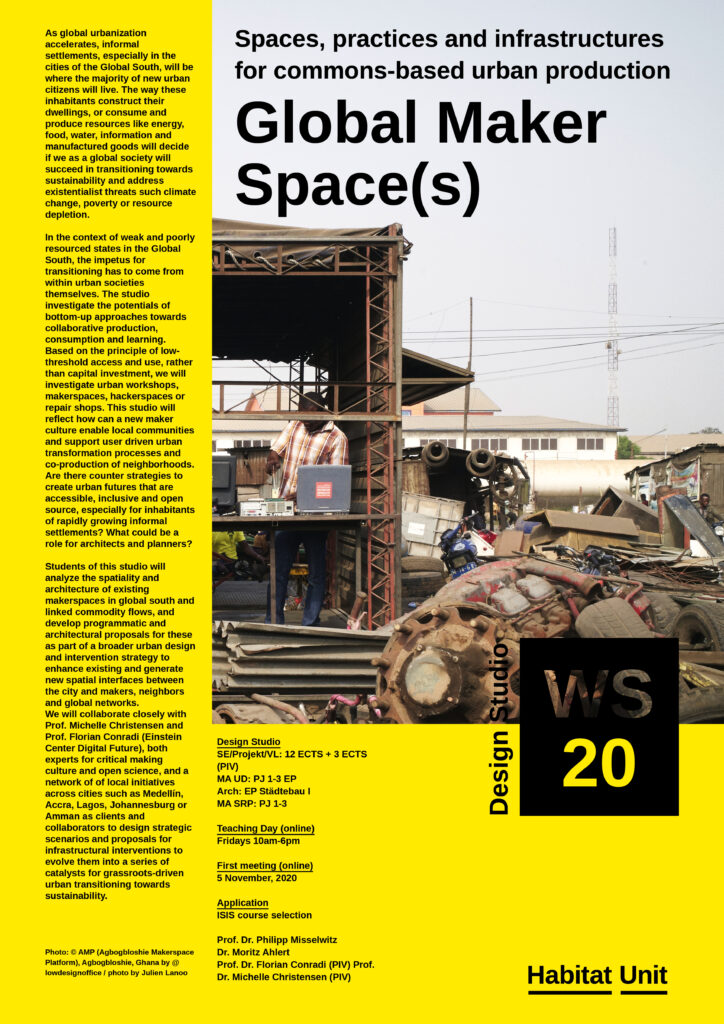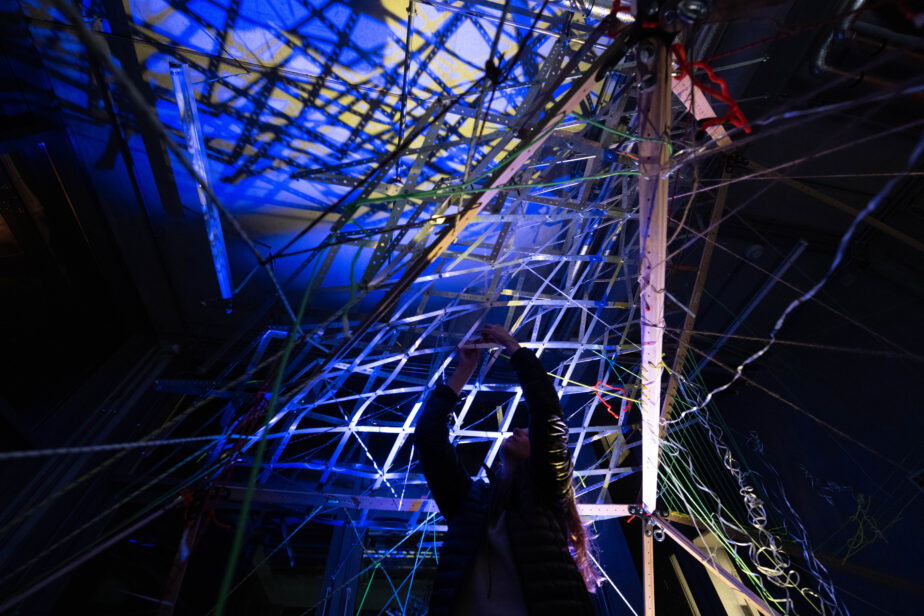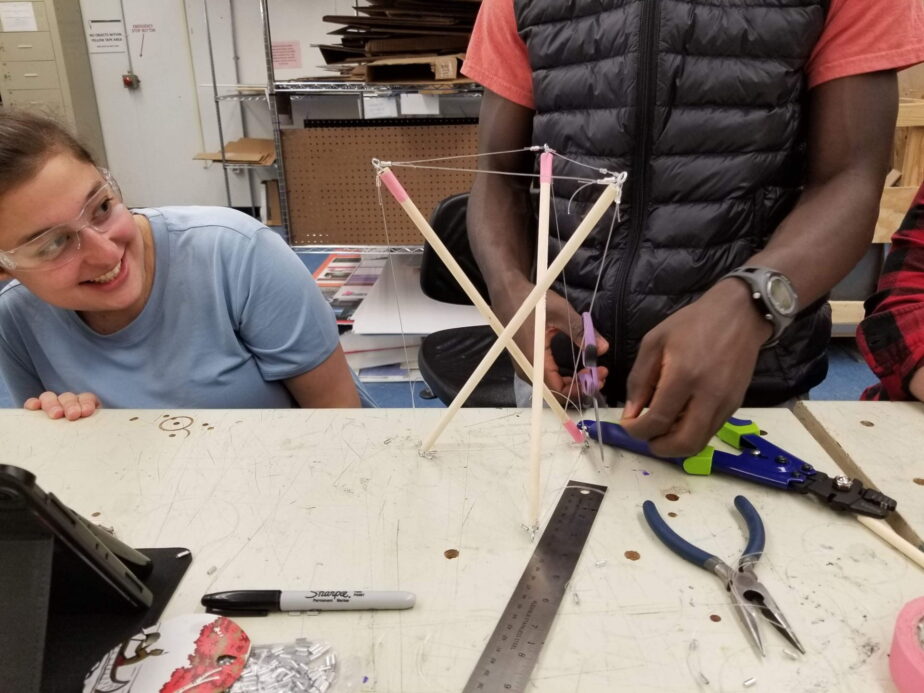HuMatLab joined with Penn State’s Spatial Æffect Lab to develop the prototype “Habit@” (i.e., habitat), as part of the Driving the Human art-science initiative coordinated by acatech, the German National Academy of Science and Engineering, Forecast, Karlsruhe University of Arts and Design, and ZKM | Center for Art and Media Karlsruhe, with support from the German Federal Ministry for the Environment, Radialsystem, Berlin, Germany. (April 9, 2021 – October 17, 2021). First public installation of fully digitally-fabricated fufuzela (v.2.0, CNC-routed laminated bamboo) and interactive fufuzela skin. “Driving the Human is a catalyst for experimentation, shaping sustainable and collective futures that combine science, technology, and the arts in a transdisciplinary and collaborative approach.” Project overview:
Category: prototyping
AMP model in action: design pedagogy
HuMatLab presented AMP model to 20 Masters of Architecture and Urban Design students from TU Berlin in the DESIGN STUDIO, WS 2020/2021, taught by Prof. Dr. Philipp Misselwitz, Moritz Ahlert: Global Maker Space(s) | Spaces, practices and infrastructures for commons-based urban production
[Initial prototype of AMP spacecraft in Agbogbloshie scrapyard shown in poster below. Image: Julien Lanoo/LOWDO/AMP]
"As global urbanization accelerates, informal settlements, especially in the cities of the Global South, will be where the majority of new urban citizens will live. The way these inhabitants construct their dwellings, or consume and produce resources like energy, food, water, information and manufactured goods will decide if we as a global society will succeed in transitioning towards sustainability and address existentialist threats such climate change, poverty or resource depletion."

"In the context of weak and poorly resourced states in the Global South, the impetus for transitioning has to come from within urban societies themselves. The studio investigate the potentials of bottom-up approaches towards collaborative production, consumption and learning. Based on the principle of low-threshold access and use, rather than capital investment, we will investigate urban workshops, makerspaces, hackerspaces or repair shops. This studio will reflect how can a new maker culture enable local communities and support user driven urban transformation processes and co-production of neighborhoods. Are there counter strategies to create urban futures that are accessible, inclusive and open source, especially for inhabitants of rapidly growing informal settlements? What could be a role for architects and planners?"
"Students of this studio will analyze the spatiality and architecture of existing makerspaces in global south and linked commodity flows, and develop programmatic and architectural proposals for these as part of a broader urban design and intervention strategy to enhance existing and generate new spatial interfaces between the city and makers, neighbors and global networks.We will collaborate closely with Prof. Michelle Christensen and Prof. Florian Conradi (Einstein Center Digital Future), both experts for critical making culture and open science, and a network of of local initiatives across cities such as Medellín, Accra, Lagos, Johannesburg or Amman as clients and collaborators to design strategic scenarios and proposals for infrastructural interventions to evolve them into a series of catalysts for grassroots-driven urban transitioning towards sustainability."
Making tensegrity tripods (warm-up exercise)
fufuzela scale model- test assembly
—with Bryan Ray and Nick Fudali, at HuMatLab

